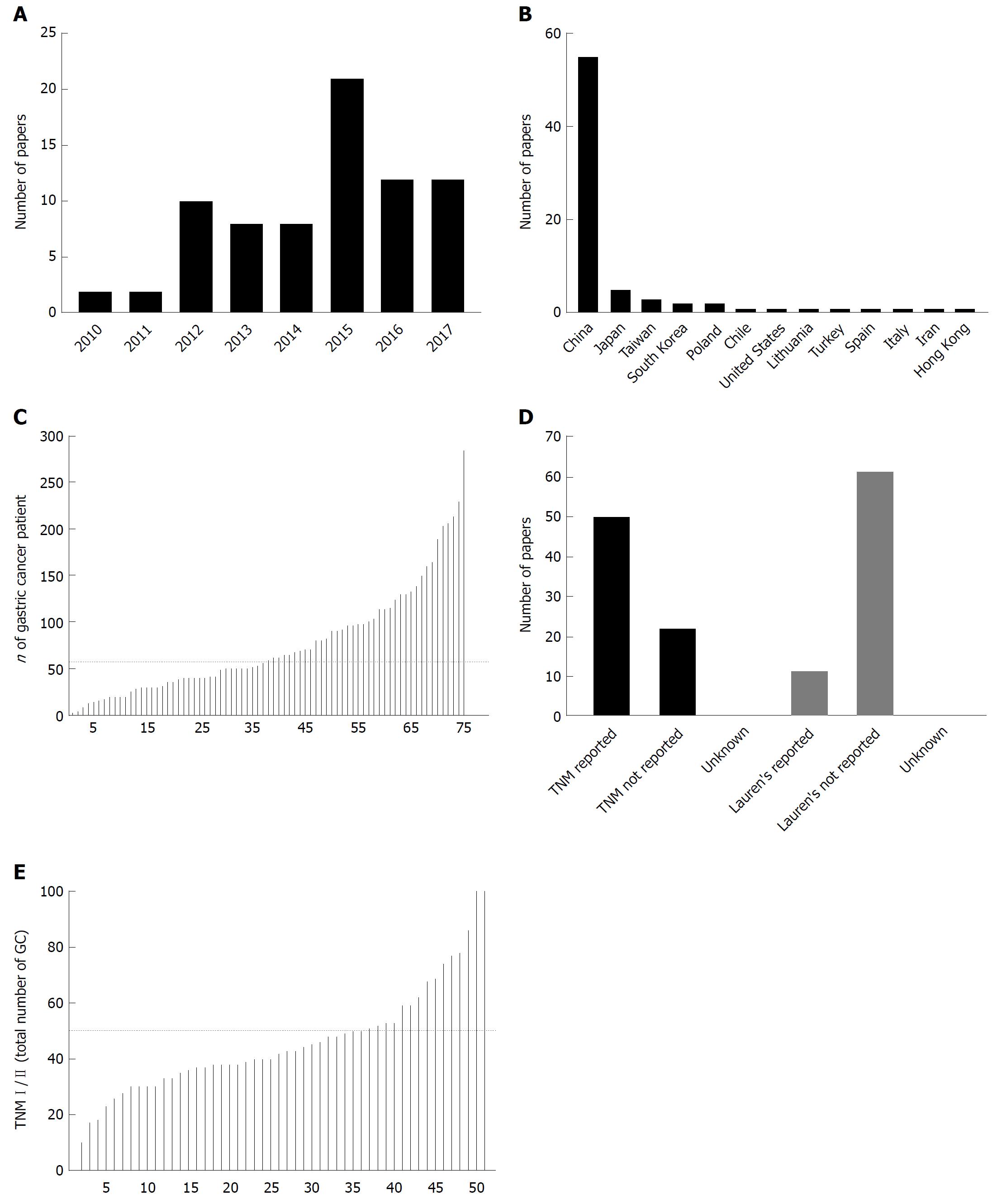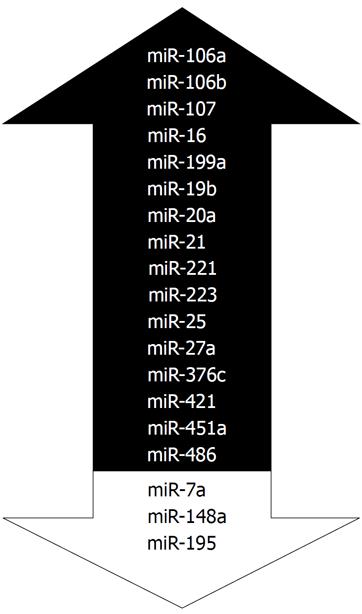Copyright
©The Author(s) 2018.
World J Gastroenterol. Aug 14, 2018; 24(30): 3313-3329
Published online Aug 14, 2018. doi: 10.3748/wjg.v24.i30.3313
Published online Aug 14, 2018. doi: 10.3748/wjg.v24.i30.3313
Figure 1 Characteristics of the studies to microRNAs as diagnostic biomarkers in gastric cancer.
In total we have identified 75 studies. A: Time trends in number of published papers starting 2010 to 2017. B: Number of papers dependent on the origin of GC tumor specimens studied. C: Total number of specimens per publication/analysis from GC patients studied. D: Number of papers reporting or not reporting TNM staging or Lauren´s classification. E: Proportion of patients with early (TNM stage I and II) to total number of GC specimen’s studied. GC: Gastric cancer.
Figure 2 Characteristics of the studies to microRNAs as non-invasive diagnostic biomarkers in gastric cancer based on technical characteristics.
A: Number of studies based on the used blood specimens. B: Number of papers using various extraction kits. C: Number of papers with various method for miRNA analysis. D: Number of studies using different normalization methods for miRNA analysis. Since several studies used one or several methods, the total number may exceed 75.
Figure 3 Schematic presentation of most frequently deregulated microRNAs in gastric cancer.
Selection was made using following criteria: at least 3 reports with at least 2 reports with either up or downregulation.
- Citation: Link A, Kupcinskas J. MicroRNAs as non-invasive diagnostic biomarkers for gastric cancer: Current insights and future perspectives. World J Gastroenterol 2018; 24(30): 3313-3329
- URL: https://www.wjgnet.com/1007-9327/full/v24/i30/3313.htm
- DOI: https://dx.doi.org/10.3748/wjg.v24.i30.3313











